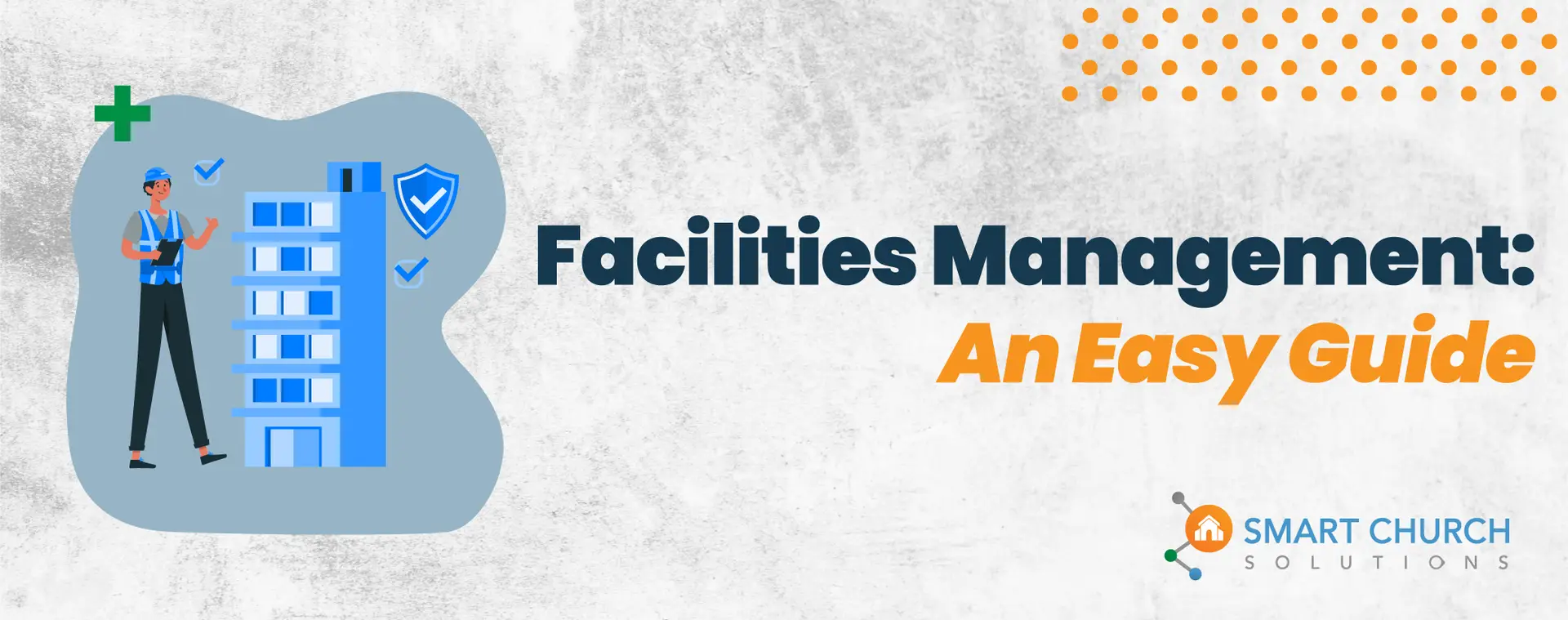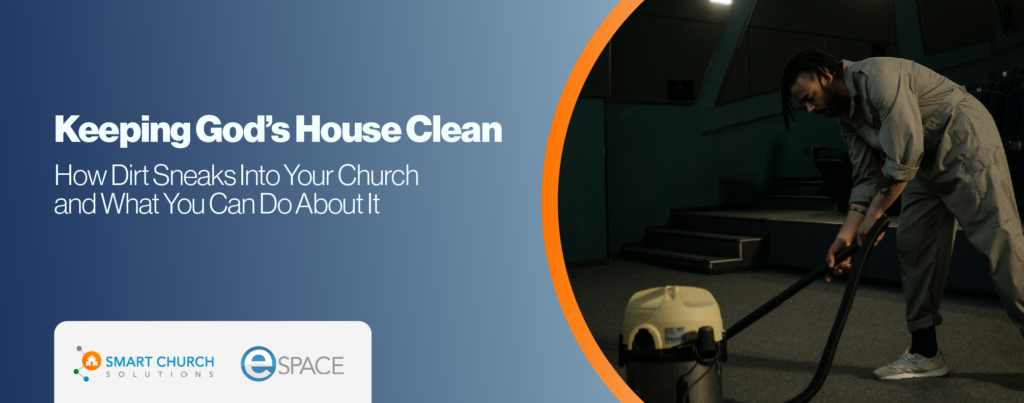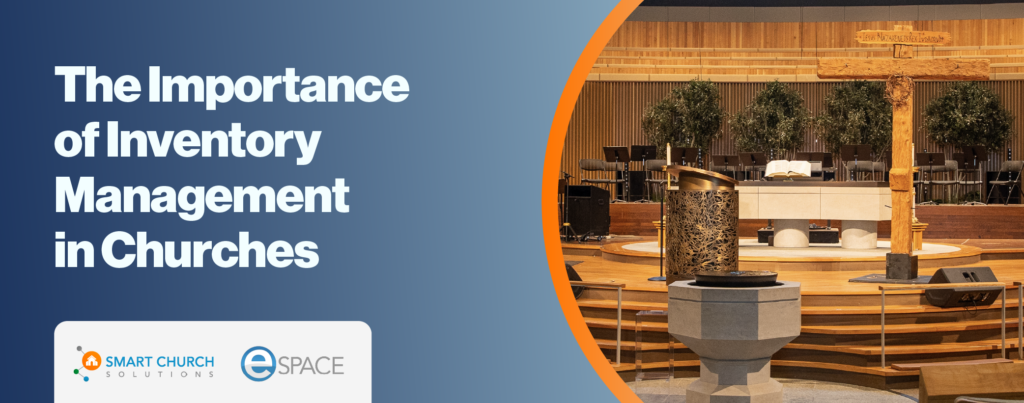Welcome to Smart Church Solutions’ guide to Facilities Management. In this comprehensive blog, we’ll explore the world of facilities management, its importance, and how technology is revolutionizing this field.
Whether you’re a church leader, facility manager, or simply curious about this profession, you’ve come to the right place. We’ll cover everything from the basics of facilities management to the latest trends and technologies. Let’s dive in.
What is Facilities Management?
Facilities management, often abbreviated as FM, is the integrated management of various aspects of a built environment to ensure functionality, comfort, safety, and efficiency of the space. It involves coordinating people, processes, and technology to maintain and enhance the overall quality of life within a building or facility. In turn, facilities managers oversee various responsibilities, from maintenance and security to space planning and sustainability.
Formal Definition
The International Organization for Standardization (ISO) defines facilities management as “an organizational function which integrates people, place, and process within the built environment with the purpose of improving the quality of life of people and the productivity of the core business.”
What do Facility Managers do?
Facility managers (or as we call Facility Stewards) are the individuals responsible for the smooth operation of any facility. Their multifaceted roles include overseeing maintenance, security, cleaning, safety, and space planning. Some typical responsibilities for facility managers include the following:
- Developing and implementing maintenance and repair schedules
- Managing energy consumption and associated costs
- Optimizing space for events
- Providing workplace amenities and services
- Planning and executing capital improvement projects
- Ensuring compliance with health and safety regulations
- Responding to emergencies that occur on the premise
In short, it’s safe to say facility managers wear many hats.
What are the qualifications to be a facilities manager?
To become a successful facilities manager, you need the right qualifications and knowledge. There are several paths to enter this field, and the qualifications can vary depending on the position and organization. Generally, the qualifications can be divided into two categories: education requirements and facility management certifications.
Education Requirements
While not always mandatory, a bachelor’s degree in fields such as facilities management, engineering, business administration, construction management, or real estate can be an excellent foundation. Many facilities managers start in related roles and work their way up, combining education and practical experience to excel in their careers.
FM Certifications
For those seeking to distinguish themselves in the field, various facilities management certifications are available. Some popular certifications include:
- Certified Facility Manager (CFM)
- Facilities Management Professional (FMP)
- Workplace Strategist (WPS)
These certifications demonstrate your commitment to professionalism and can enhance your career prospects.
11 Core Competencies of FM
To take it a step further, The International Facility Management Association (IFMA) has identified the following 11 core competencies of facilities management:
- Communication
- Customer focus
- Financial management
- Human resources management
- Information management
- Leadership
- Management processes
- Project management
- Quality management
- Strategic planning
- Sustainability
Why is Facility Management Important?
Alright, so we have covered what facilities management is, but why is it essential? In short, well-managed facilities can have a significant impact on an organization’s bottom line. Facilities management plays a crucial role in ensuring the smooth operation of any facility, whether it’s an office building, healthcare facility, educational institution, or church. Some key reasons why facilities management is vital include the following:
- Optimizing Cost: Efficient facilities management can help reduce operating costs by implementing energy-efficient practices and reducing waste.
- Ensuring Safety: Facilities managers are responsible for the safety of the occupants, ensuring that buildings comply with safety codes and regulations.
- Enhancing Productivity: A well-maintained and organized facility can contribute to increased productivity among its occupants.
Facilities Management Technology & Software
It should be no surprise that technology is transforming the field. The adoption of specialized software and tools has streamlined processes and made the job of facility managers more efficient. For instance, here are some key types of software used in the field to increase efficiency and productivity:
Work Order Software
Work order software allows for the efficient scheduling, assignment, and tracking of maintenance and repair tasks. It helps facility managers prioritize and manage work orders, reducing downtime and ensuring timely repairs.
Asset Management Software
Asset management software assists in tracking and managing physical assets within a facility. This includes equipment, furniture, and other valuable assets. It helps with inventory management and ensures assets are well-maintained and accounted for.
Utility Tracking Software
Utility tracking software is used to monitor and manage utility consumption, such as electricity, water, and gas. It enables facility managers to identify areas of inefficiency and implement measures to reduce utility costs and environmental impact.
Facility Management Software
Comprehensive facility management software combines various functionalities, including work order management, asset tracking, space planning, and more. It provides a holistic view of the facility’s operations and simplifies decision-making for facility managers.
For example, eSPACE, Smart Church Solution’s facility management software, is a cloud-based facilities platform that provides a comprehensive suite of tools to help facility managers manage their operations more effectively. eSPACE includes features for work order management, asset management, space management, preventive maintenance, and more.
Not sure where to begin with facility software? A personalized eSPACE demo can walk you through what’s possible and help you discover the right tools for your church’s needs. Book a free call here.
Resources for Facility Managers
Facility managers need access to various resources, including industry publications, professional organizations, and networking opportunities. Staying informed and connected is essential to success in this field.
For example, one of our greatest resources is our Facebook group, Church Facility Management Solutions. This group is a community of church facility practitioners, professionals, volunteers, paid staff, pastors, deacons, trustees, and nearly every type of church personnel. Here, you’ll find answers to your questions and encouragement from other professionals.
Join the conversation in our Church Facility Management Solutions Facebook group—connect with peers, ask questions, and share insights with others who understand the unique challenges of church facility management. Join here.
How does eSPACE support Facility Managers?
At Smart Church Solutions, we understand the unique needs of facility managers, especially in the context of churches and religious institutions. Our eSPACE software is designed to support facility managers in effectively managing their facilities. From scheduling events and maintenance tasks to tracking assets and optimizing space usage, eSPACE provides a robust set of tools to enhance your facilities management efforts.
In conclusion, facilities management is a multifaceted field that encompasses various responsibilities to optimize the functionality, safety, and efficiency of a built environment. With the right qualifications and the support of technology and software like eSPACE, facility managers can excel in their roles and ensure the smooth operation of their facilities.
Are you ready to take your facility management to the next level? Contact us for a demo today and see how eSPACE can make your job easier and more efficient.








